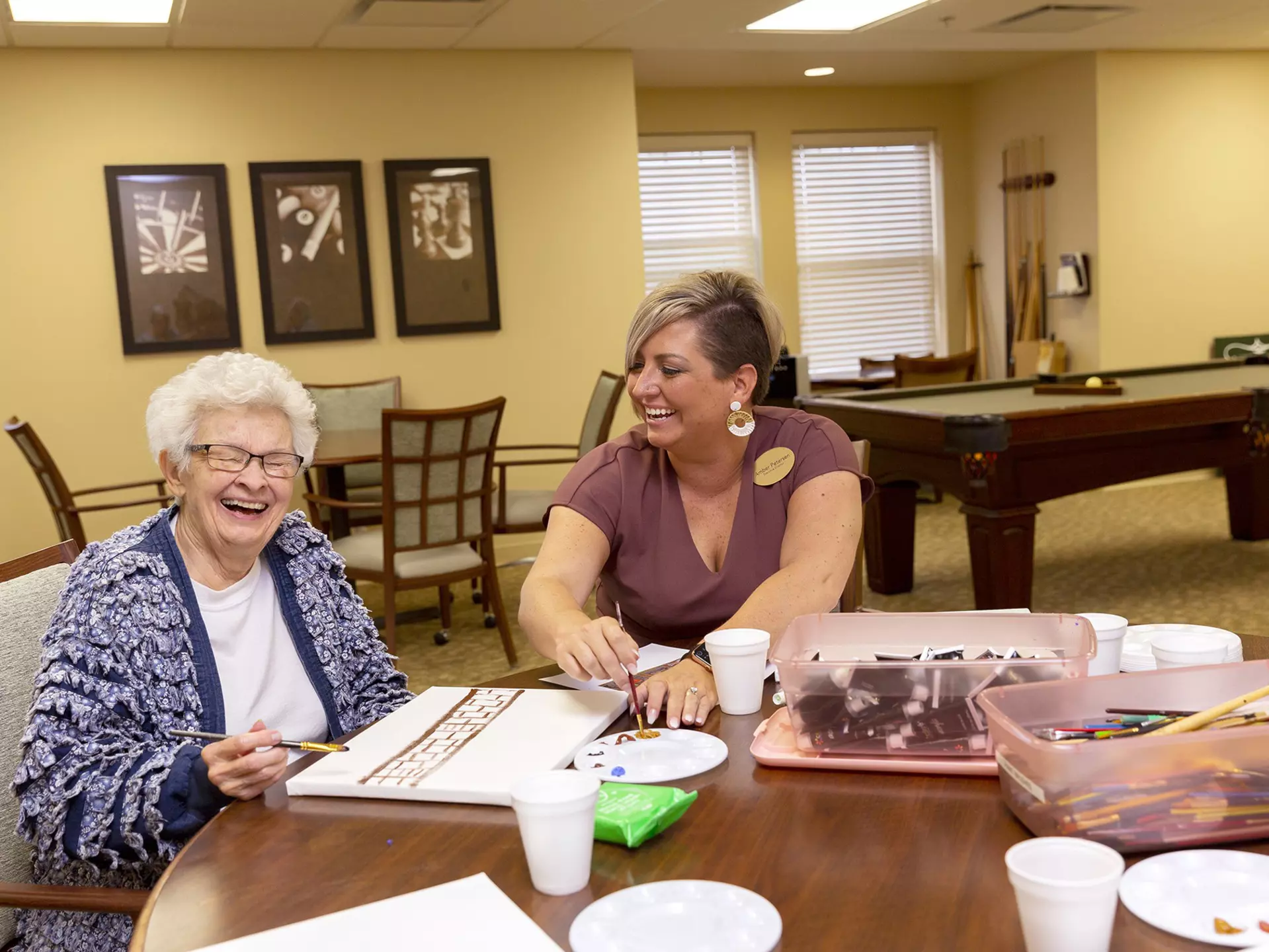As dementia progresses, it can become harder for people affected to think clearly or make important decisions. This often includes the ability to sign legal documents. If you’re caring for someone with dementia, planning ahead of time can help ensure their wishes are honored and their needs are met.
Most legal matters require a person to understand their choices and make informed decisions. You might wonder, can someone with dementia sign legal documents? While dementia can affect decision-making, especially in later stages, there are still options to consider if your loved one is no longer able to make decisions on their own.
In this blog, we’ll explore how dementia affects legal matters and what steps you can take to ensure your family member’s needs are met.
Understanding Mental Capacity and Dementia
Mental capacity refers to an individual’s ability to understand information and clearly communicate their decisions. While dementia can affect a person’s decision-making ability, your loved one may still be able to sign legal documents, especially in the early stages.
How Dementia Affects Mental Capacity
Dementia symptoms often become more severe as the disease progresses. In the later stages, a person’s cognitive abilities can be significantly affected.
Let’s take a look at the different stages of dementia and how they impact your family member’s ability to make decisions:
- Mild Dementia: This is the early stage of dementia. Your loved one may experience forgetfulness, difficulty finding words, or mild confusion. However, many people in this stage can still make their own decisions.
- Moderate Dementia: As dementia progresses, judgment and reasoning may decline, making financial or legal decisions more difficult.
- Advanced Dementia: In this stage, severe memory loss and confusion can make independent decision-making very challenging. At this point, your loved one may no longer be able to legally sign documents.
When Can a Person With Dementia Sign Legal Documents?
If your parent has been diagnosed with dementia, it’s natural to wonder about their ability to make important decisions. Can someone with dementia sign legal documents? The answer depends on their mental capacity, which is their ability to understand what they’re signing and the consequences of their decisions.
In the early stages of dementia, many people can still make legal decisions. If your family member understands the nature and effect of a document, they may still be legally able to sign. However, as dementia progresses, their ability to think clearly and make informed choices can decline. Once they can no longer fully understand or communicate their decisions, they may no longer be considered legally competent to sign documents. If someone is found to be mentally incapacitated at the time of signing, their signature may not be legally valid.
Because dementia is unpredictable, it’s best to handle legal matters as early as possible. If your loved one is still in the early stages, it’s a good time to talk to an attorney about getting the necessary paperwork in place.

When Can’t a Person With Dementia Sign Legal Documents?
As your loved one’s condition progresses, you might wonder if someone with moderate dementia can sign legal documents? In many cases, it can become more challenging for a person to fully understand and make important decisions as symptoms of dementia advance. This often means there are certain times when a person with dementia may be determined to not have the mental capacity to sign legal documents.
Here are some key situations to be aware of:
- Severe Cognitive Impairment: During later stages, dementia can diminish a person’s ability to make conscious decisions. If your loved one can no longer hold a conversation or understand what’s happening around them, they likely lack the ability to legally sign documents.
- Inability to Grasp Consequences: When signing legal documents, it’s important to clearly understand the consequences and risks involved. If a person with dementia cannot understand a document or the consequences of signing it, they may not have the legal capacity to sign.
- Risk of Coercion: Some situations require decisions to be made without any pressure or influence from others. If it’s clear that a person isn’t signing the document on their own free will, the document could be considered legally invalid.
- Court Determination of Incapacity: In some cases, a court may decide that a person with dementia is no longer able to make legal decisions on their own. In such cases, if a power of attorney has been appointed, that person may have the right to make legal decisions, including signing documents on their behalf.
- Mental Incapacity: As dementia progresses, a person’s ability to think clearly may begin to decline. If someone is found to be mentally incapacitated at the time of signing, their signature may not be legally valid.
Common Legal Documents Affected by Dementia
Dementia can impact a person’s capacity to make decisions about important matters, including legal documents. If someone you love is living with dementia, it’s essential to understand which documents may be affected by dementia and how you can plan ahead.
Here are some key legal documents that can be impacted:
Wills and Estate Planning
A will helps outline what should happen to a person’s property and belongings after they pass away. However, dementia can affect memory and decision-making, making it difficult for someone to update or create a will.
Can someone with early dementia sign legal documents? In many cases, individuals may still have the mental capacity to sign legal documents in the beginning stages of dementia. If your loved one is in the early stages of dementia, it’s helpful to discuss estate planning while they can still make decisions. It’s also a good idea to consider reviewing their will regularly to ensure it reflects their wishes.
Power of Attorney (POA)
A power of attorney (POA) gives someone the legal authority to make decisions on behalf of another person, especially when they’re unable to do so themselves. If your loved one is diagnosed with dementia, it’s a good time to consider setting up a POA if one hasn’t been established yet. This can help ensure that someone is available to step in to handle important matters if needed.
Advance Health Care Directives
An advance health care directive, also known as a living will, outlines a person’s preferences for medical care if they are unable to communicate their wishes. This can include decisions about life-saving treatments and end-of-life care. As dementia progresses, your loved one may no longer be able to express these wishes, which is why it’s important to address their health care preferences early on. Setting up an advance health care directive when they can still communicate their desires can help provide peace of mind for everyone involved.

Steps to Verify Capacity Before Signing
If you’re wondering if someone with dementia can sign legal documents, it often depends on their ability to understand what they’re agreeing to. Before your loved one signs any important legal papers, it’s essential to make sure they have the mental clarity to make informed and legally valid decisions.
Here are some steps to help you assess whether your family member can still sign legal documents:
- Consult a Doctor or Specialist: A health care professional can evaluate your parent’s cognitive abilities to decide if they can sign legal documents. If your loved one is in the later stages of dementia, it’s even more important to have a professional assess their capacity before signing anything.
- Verbal Assessment: Gently asking your family member questions can help you gauge their understanding. Asking questions like, “Do you know what this document is for?” or “Are you comfortable signing this?” can help determine whether they fully understand what they’re agreeing to.
- Seek Legal Advice: A lawyer can help determine if your loved one has the legal capacity to sign documents. Legal experts can also guide you on alternatives like power of attorney (POA) or guardianship if your aging parent cannot make decisions on their own.
- Document Everything: It’s important to keep clear records of all assessments and conversations about your parent’s ability to sign legal documents. This can help prevent any challenges or confusion if questions arise later on.
Alternatives When Capacity Is Lost
When someone with dementia is no longer able to make decisions or sign legal documents, it can be a difficult time for both the affected individual and their family. Thankfully, there are several options you can explore to help ensure your parent’s wishes are respected, even if they can’t make decisions on their own.
Here are some alternatives to consider:
- Guardianship or Conservatorship: If a loved one is unable to manage important aspects of their life, like personal care or finances, the court may appoint a guardian or conservator to help. This is a formal process where the court gives someone legal authority to make decisions for a person who can no longer make those decisions themselves.
- Power of Attorney: A power of attorney (POA) allows someone you trust to make decisions on your behalf, including financial and health care choices. This can be set up ahead of time while your parent is still able to make decisions. There are different types of POA, and it’s important to choose the right one based on your loved one’s needs.
- Advance Health Care Directive: An advance health care directive (also known as a living will) lets someone specify their preferences for medical treatment in case they can no longer communicate. A living will can help ensure your family member’s wishes and preferences are honored, even if they’re incapacitated.
- Revocable (Living) Trust: A Revocable (Living) Trust is a legal arrangement that allows someone to manage their assets while they’re still alive and helps pass them on to loved ones after their death. The person who creates the trust can change it or cancel it at any time, which is why it’s called “revocable.”
- Supported Decision-Making: In some cases, people can still make their own decisions with help from those they trust. This can include getting advice from close friends or family members to guide them through important choices.
StoryPoint Group: Here For You And Your Loved One
At StoryPoint Group communities, we understand how challenging it can be to support a family member with dementia. We’re here to guide you every step of the way. If someone you love could benefit from memory care or any other type of support, we’re here to help. Contact us today or give us a call now at 1-844-275-9990 to learn more about our services.












